Most Recent News


Popular News



The job search process is incredibly screwed up. It's hard to get a job out there as a new college graduate. Here's my personal experience.
 Even with record low unemployment rates, getting a job as a new graduate still isn’t the easiest task around.
Even with record low unemployment rates, getting a job as a new graduate still isn’t the easiest task around.
I recently went through the grinder myself. I now have a great job that I’m happy with. And moved to a really cool new area to top it off. So all hope isn’t lost, but it isn’t easy to do either.
There seems to be a large segment of people that think it is easy to get a “good job” with a college degree. I guarantee you, that is not true. It still is a ton of work, and many times people need to work ‘trainer’ jobs first. This is especially true for people with low-worth degrees. I at least had a math-intensive background with a ton of finance and relative experience. But more on that below.
Keep in mind: my experience doesn’t mean everyone else did as well as I did. And the job search process itself is horrific. I still have friends that are unemployed that graduated along with me.
However, I don’t think they figured out ‘the game’ of putting in applications yet. I had job search experience prior after getting my B.B., so maybe I had a bit of a leg up there. Without that knowledge or networking, you’ll be in for a rough transition to the workforce.
I collected data as I went through the job search and used it to create the graphs below. This is all personal data. Nothing was grabbed from external sources. I kept it up to date as I went along.
I applied to 196 jobs over a few months. I spread these jobs around the entirety of the United States (and about 3 even outside the country, but with US based employers).
Each job I applied to was customized. This means I utilized the keywords I found in job postings and crafted a unique cover letter. For every… single… job.
All jobs I applied to were well within reasonable limits for something I could do. IE: I wasn’t applying to be a CFO.
Important note: I applied to about 50% government jobs and 50% private jobs. Not exactly, obviously, but close to that ratio. Government jobs are much more transparent with rejections, which is why other people tend to have higher “ghosted” ratios than I did.
My background: I am an economics student with a graduate degree in the field with research backing and stellar GPA. I also have worked at about 7 different blue collar/white collar jobs throughout my life that add direct experience to the places I applied to.
First, we start with the location of applications.
As mentioned above, I cast a wide net. I was willing to work literally anywhere (no location restriction).
With these applications, I always noted my ability/willingness to relocate of my own accord. (Some companies are afraid of the ‘relocation cost’).
Many places I applied involved multiple locations, sometimes up to 10 different cities. That indicates the outlier.
Also, I applied to so many places that it won’t fit all in one graph. So, some places have been cut out. These are the main places.
(Right click, view image or enlarge to view larger version of graphs)
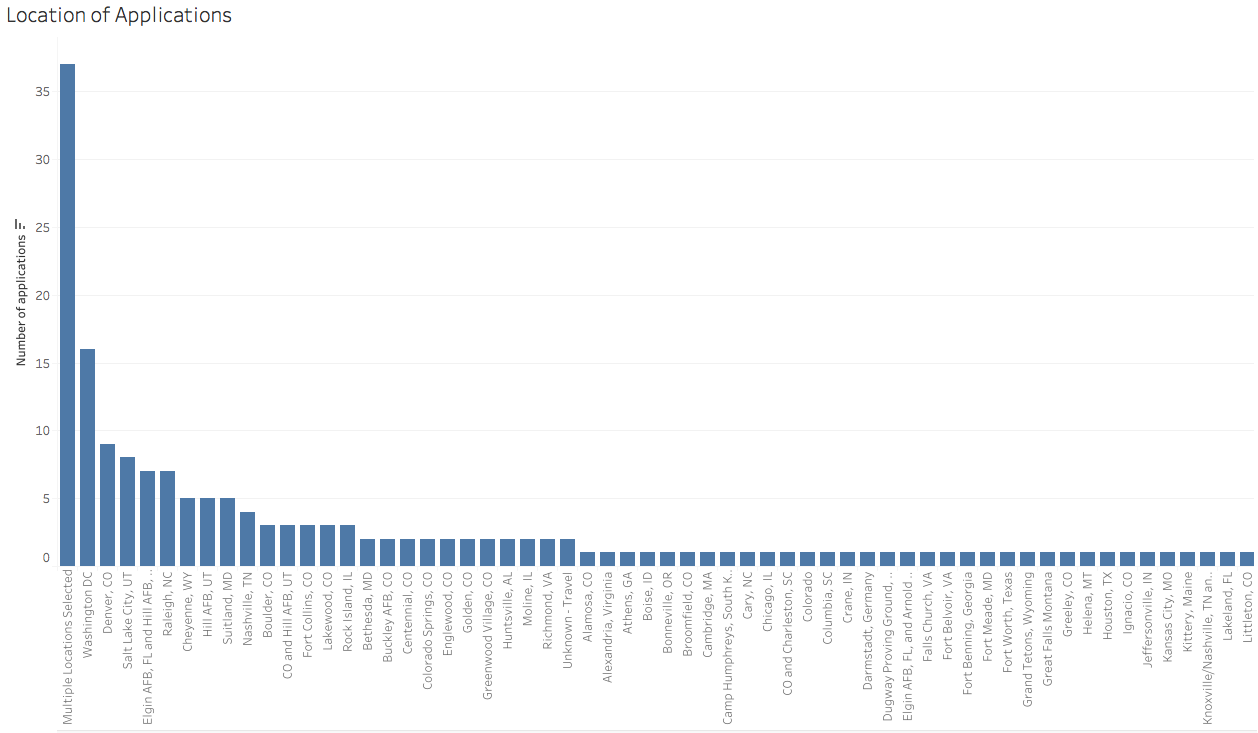
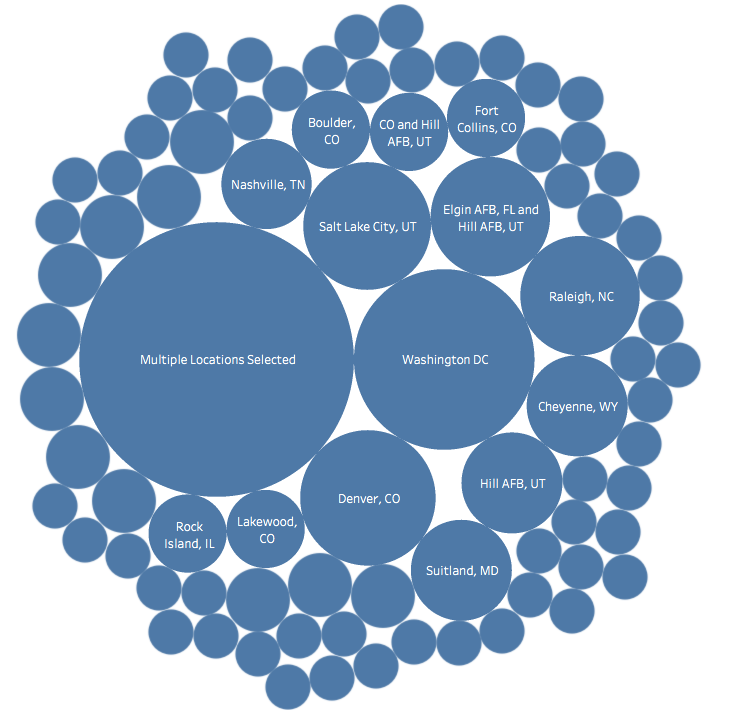
And what’s the point of graphs without another graph indicating how many places I applied to?
196.
196 applications for one job.
It hurts just thinking about it.
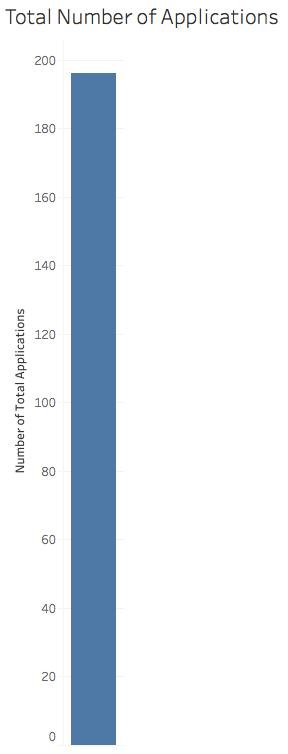
Now we move into the “how often did I apply?” question.
The truth? I had high-impact days, and days where I did not apply at all.
The biggest day was earlier in my search, when I put in a whooping 16 applications in one day. (Please remember, these apps are ALL keyword optimized, personal cover letter, and revised online application forms/LinkedIn checks). It was never a “quick apply” on Indeed spam day.
Some applications took a half hour, some took a full hour. Sadly, time spent is not something I tracked. But if anyone else decides to track their job search, I’d highly recommend adding that metric in. Would be interesting to research.
An interesting note is that I started to get interview requests around early February, which is why the drop off in applications happened then. I began to focus more on preparing for interviews.
That is, until toward the end when I got nervous and started to apply, practice interviewing, and do general job search tasks for a ridiculous number of hours a day, every day Monday to Sunday.
An important note: it took me 5 months to find a job (January to May). Do not wait to start applying until after you graduate.
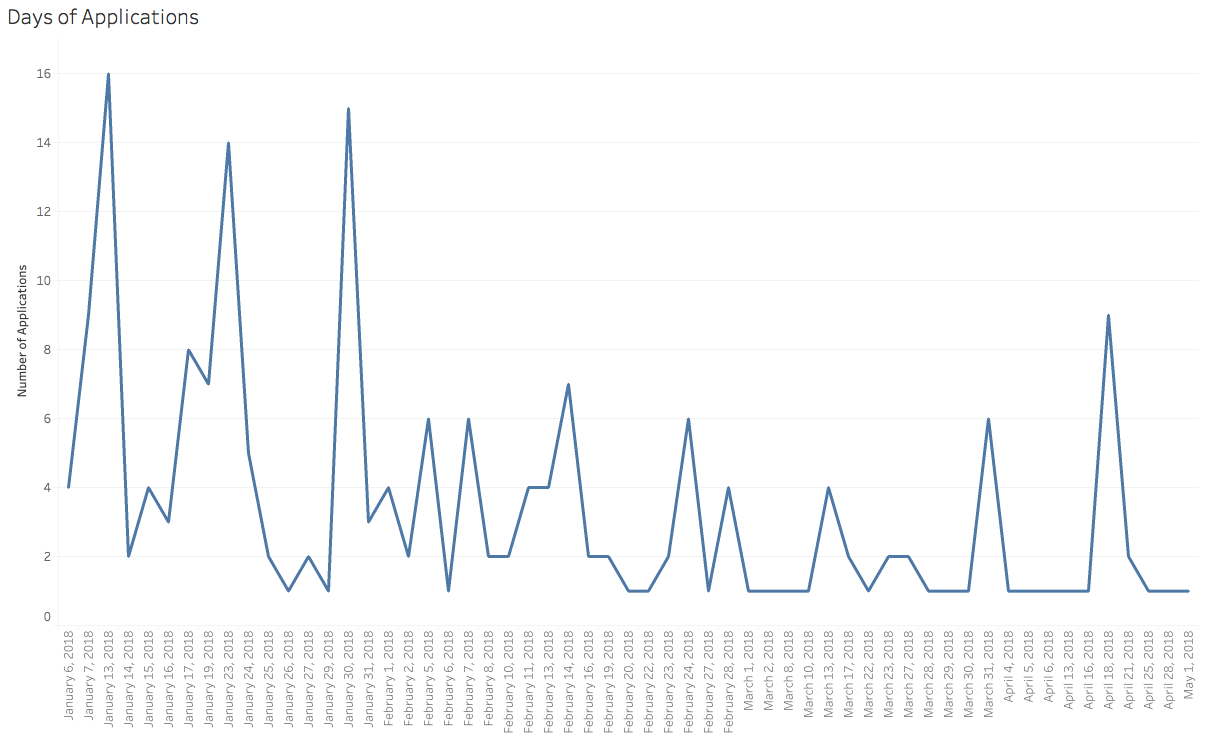
Now the part everyone wants to know. How did this end?
The vast majority (>90) applications I sent received no response.
Obviously, this is a “gentle decline”.
Many jobs I applied to were with the government, so luckily I got a lot of rejection emails. These come in place number 2 with over 70.
Possibly the best were the nearly 20 auto-rejects I received. This occurred when I applied to a place on a certain day and received an email rejection around midnight… the same night. So, I got wrecked by the filter, pretty much.
Finally, I had 10 interviews total that did not result in a job. I turned down four of these jobs because they lied to me (“Budget specialist”, actually a multi-level sales scheme—yeah that really happened). Another three I was told they went with another applicant. The final three ghosted me post-interview.
Obviously, I received one job offer that I accepted, so I did not include that on the graphs.
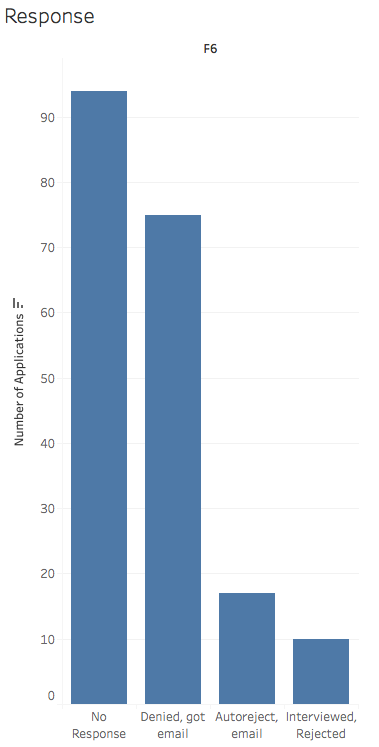
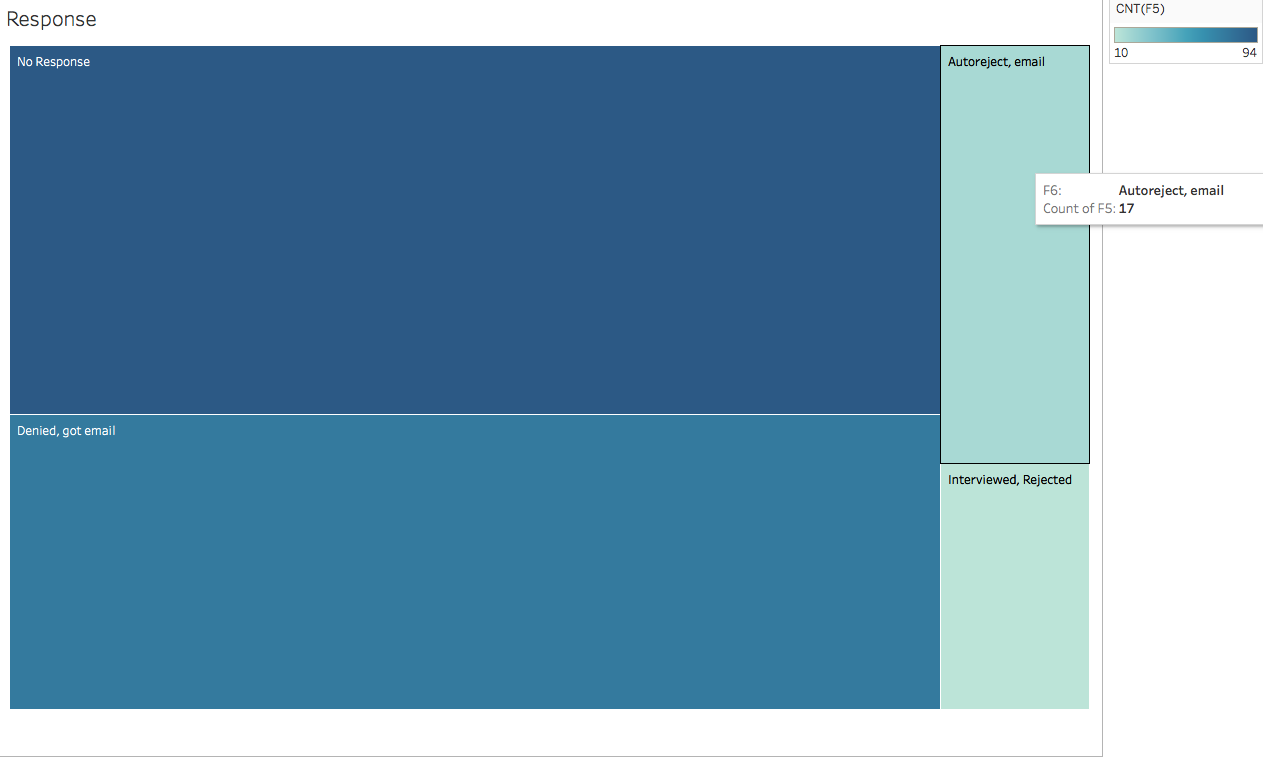
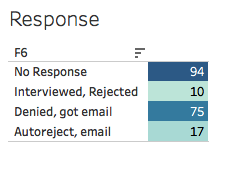
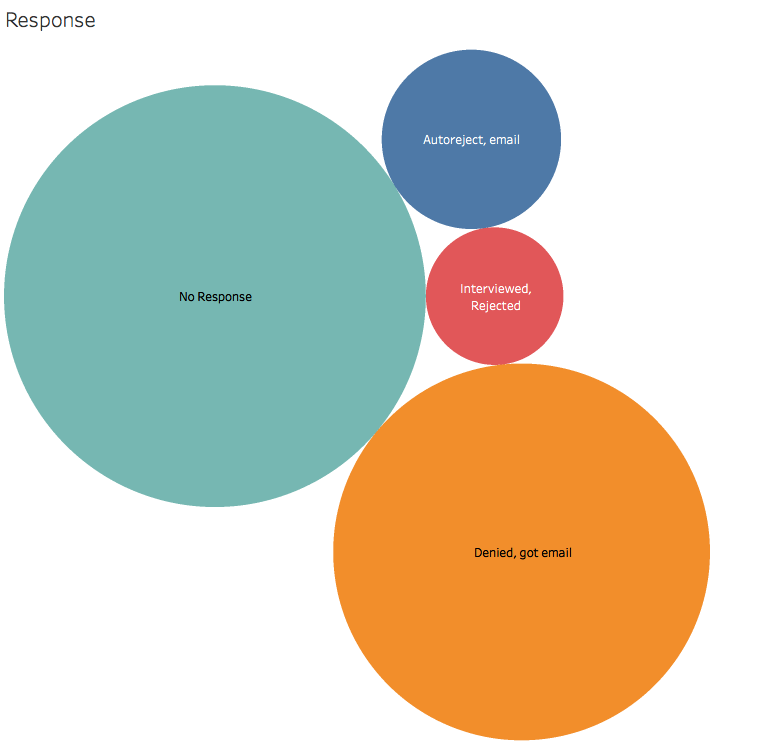
The graphs tell the story of my journey.
As a (semi) new-grad, I had to custom apply to over 196 jobs because I did not have networking connections.
If you have those, please utilize them. And then don’t tell me, because I will be jealous.
Two things of interest from this data:
Two tips for people searching for employment:
If any of you have similar personal experience with this, I’d love to hear about it. Leave me a comment below.
(Learn More About The Dominion Newsletter Here)